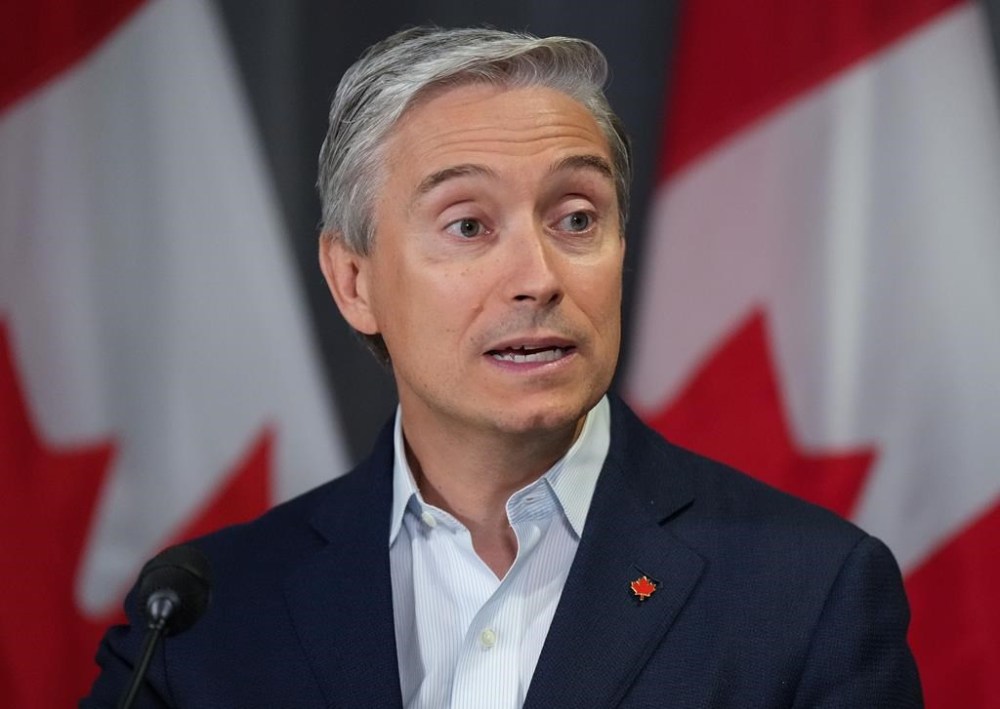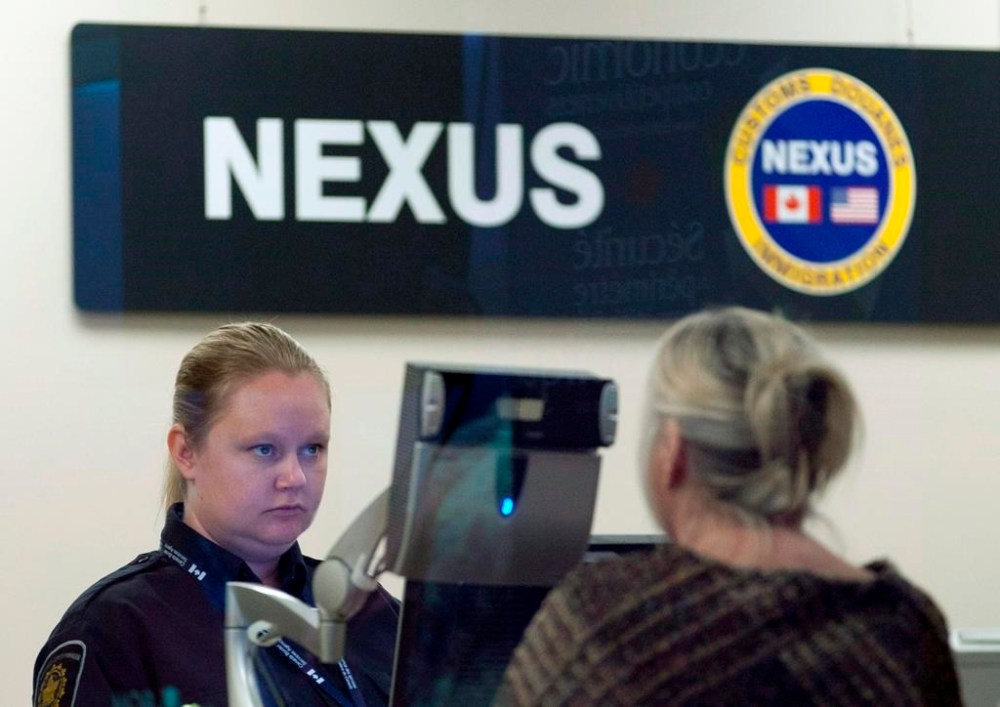Industry minister on Canada-U.S. Nexus dispute: ‘Should be an easy one to resolve’
Advertisement
Read this article for free:
or
Already have an account? Log in here »
To continue reading, please subscribe:
Monthly Digital Subscription
$0 for the first 4 weeks*
- Enjoy unlimited reading on winnipegfreepress.com
- Read the E-Edition, our digital replica newspaper
- Access News Break, our award-winning app
- Play interactive puzzles
*No charge for 4 weeks then price increases to the regular rate of $19.00 plus GST every four weeks. Offer available to new and qualified returning subscribers only. Cancel any time.
Monthly Digital Subscription
$4.75/week*
- Enjoy unlimited reading on winnipegfreepress.com
- Read the E-Edition, our digital replica newspaper
- Access News Break, our award-winning app
- Play interactive puzzles
*Billed as $19 plus GST every four weeks. Cancel any time.
To continue reading, please subscribe:
Add Free Press access to your Brandon Sun subscription for only an additional
$1 for the first 4 weeks*
*Your next subscription payment will increase by $1.00 and you will be charged $16.99 plus GST for four weeks. After four weeks, your payment will increase to $23.99 plus GST every four weeks.
Read unlimited articles for free today:
or
Already have an account? Log in here »
Hey there, time traveller!
This article was published 21/10/2022 (1148 days ago), so information in it may no longer be current.
WASHINGTON – Canada’s clash with the United States over the Nexus trusted-traveller program should be resolved well before the president and prime minister meet in December, Industry Minister François-Philippe Champagne said Friday.
Champagne, who was in Washington, D.C., to meet with Commerce Secretary Gina Raimondo, said he raised the issue with his U.S. counterpart as an example of a situation that would be in the interest of both countries to solve promptly.
“If I look at the challenges that we’re facing, I would say this should be an easy one to resolve, because after all, this is about making sure that the border is as fluid as possible,” he told a news conference.

“I certainly hope that we can resolve this issue way before the president and the prime minister (meet). I think there’s an understanding on both sides that what we want at this time is fluidity.”
Prime Minister Justin Trudeau is expected to sit down with President Joe Biden when the two leaders meet with Mexican President Andrés Manuel López Obrador at the so-called Three Amigos summit in Mexico City in December.
A face-to-face between Trudeau and Biden could come sooner than that, however: Biden has yet to make his long-promised, oft-delayed first visit to Canada since becoming president. White House officials have refused to say when that trip might take place.
While Nexus enrolment centres in the U.S. have been open since April, the 13 centres in Canada have remained closed since the onset of the COVID-19 pandemic in 2020.
That’s because Customs and Border Protection won’t send U.S. agents to staff them unless they get the same measure of legal protection agents currently have at ports of entry like airports and the Canada-U.S. border.
Kirsten Hillman, Canada’s ambassador to the U.S., raised eyebrows last week when she said the Nexus program was being “held hostage” as part of a unilateral U.S. effort to renegotiate the terms of the agreement.
She went further, calling the U.S. tactics “heavy-handed” and out of character with what has otherwise been a cordial and co-operative relationship with Canada.
Champagne refused to say whether Raimondo was receptive to his concerns about the Nexus program.
“We want to be competitive, we are in a time of high inflation,” he said.
“It is incumbent upon us to make sure that we resolve this issue, as we always do with our American friends, to make sure that the officers get back to their offices so that these Nexus cards can be issued.”

The dispute is probably a minor one in the context of Canada’s efforts over the course of the last year to persuade the U.S. to abandon its plans for a tax-incentive scheme for electric vehicles that would have excluded Canadian-made cars and trucks.
Those efforts paid off in August when Biden signed into law the Inflation Reduction Act, a multibillion-dollar tax, climate and health spending package that incentivizes not only Canadian-made EVs, but those with batteries made with critical minerals from trade-friendly countries, including Canada.
Canada also stands to benefit from the CHIPS Act, a new U.S. law designed to help develop a more resilient supply chain and manufacturing base for semiconductors and wean the world from its dependence on China.
Those incentives have already helped to kick-start critical mineral and battery manufacturing projects in Canada, Champagne said.
“It’s in the U.S.’s best interest to make sure that both Canada and the U.S. remain competitive, because if you want resilience in the supply chain, you need Canada to be part of the equation — there’s no there’s no way around that,” he said.
“In everyone’s mind, Canada’s part of the equation.”
This report by The Canadian Press was first published Oct. 21, 2022.




